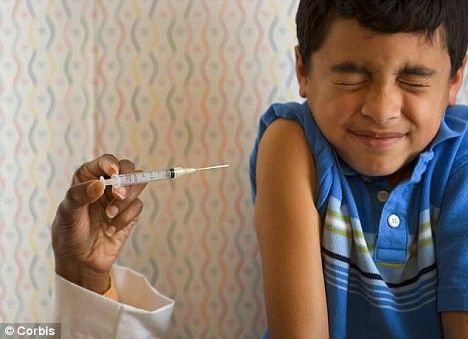

If you are planning to travel to another country with your kids, being familiar with the risks of travel helps to keep them stay safe and healthy. This may include getting prior travel advice, vaccines or certain medications – even if the destination is not considered exotic.
For example, United States is experiencing a first time high number of measles cases since 1996; many areas of developed countries in Europe reported large outbreaks of measles, meningococcal infection and pertussis and there were many who suffered serious complications from seasonal influenza in Hong Kong last year.
Children are exposed to similar health risks as adults but the consequences can be much more serious. A previous study of almost 1840 children in the US who returned from various international destinations showed that of the 86% who developed illnesses upon return; diarrheal syndrome was the most common, followed by skin disorders from animal, insect bites or parasites, fever syndromes caused by viral infections, typhoid fever, dengue, malaria, as well as respiratory tract infections.
Protecting children involves updating routine childhood vaccines and giving appropriate travel specific vaccines. There may be recommended vaccinations for your destination and it may take 4 to 6 weeks before travel to complete them. Some vaccines can be given earlier or with an accelerated schedule. The vaccines you need would depend on where you are going.
Travel-specific vaccines to consider include:
Hepatitis A
Hepatitis A is one of the most common vaccine-preventable infections acquired during travel that is spread through contaminated food and water. It is usually mild in babies and young children but in some older children above 5 years old and in adults, symptoms like fatigue, loss of appetite, abdominal pain, diarrhoea, and jaundice can be prolonged. It can last up to 2 months or longer and it even rarely lead to severe liver damage.
Hepatitis A vaccine is safe and effective. 2 doses, at least 6 months apart, are required for long-term protection.
Typhoid
Typhoid fever is caused by the bacteria, Salmonella Typhi, that is spread through contaminated food and water. It can cause high fevers, fatigue, headache, stomach pains and occasionally a rash.
It may result in low blood pressure (shock) and potentially death. An inactivated (killed) vaccine is available for prevention of infection. One dose at least 2 weeks before travel would provide protection for 2 years.
Continue reading on the next page...
Influenza
Most people recover from Influenza "the flu" within a few days to 2 weeks. Young children below 5 years and those with chronic medical conditions for example, asthma, are at higher risk from flu complications that may lead to hospitalisation and even death.
Children less than 9 years old having influenza vaccine for the first time requires 2 doses at least one month apart and protection starts 2 weeks after the series is completed. Annual influenza vaccination is recommended for young children from 6 to 59 months old and those with chronic medical conditions.
Meningococcal
Meningococcal infection caused by the bacteria, Neisseria meningitidis (particularly Serogroups A, B, C, W, and Y) leads to bloodstream infection and meningitis (infection of the lining of the brain) and is spread through close contact.
Young children are at increased risk of infection. Meningococcal vaccination is a requirement to enter Saudi Arabia for the Umrah or Hajj pilgrimage. The vaccine is also recommended for travel to areas where there are increased numbers of reported cases or outbreaks.
Meningococcal ACWY vaccines can help prevent meningococcal disease caused by serogroups A, C, W, and Y. A different meningococcal vaccine is available to help protect against serogroup B. Your doctor would be able to advise on the number and timing of doses and the need for additional booster according to your child's age.
Japanese Encephalitis
Japanese encephalitis (JE) virus is spread through a bite of an infected mosquito, and is common in rural parts of Asia. It causes encephalitis (brain infection) and can lead to death, with a rate of 1 in 4 affected people, or even long-term neurological disability.
This vaccine is recommended for travellers with prolonged stay of more than a month in rural areas, activities like trips to rural farms and extensive outdoor exposure, during the high transmission season and shorter stays in areas with an ongoing outbreak.
There are 2 types of JE vaccines available and your doctor would advise on suitability according to your child’s age.
Continue reading on the next page...
Yellow Fever
Yellow fever virus is spread through a bite of an infected mosquito. It can lead to liver, kidney, and multiple organ failure, as well as death in up to half of infected people. Vaccination is required under international health regulations for travel to certain countries like Africa, and Central or South America.
It can only be administered at certified centres and you will be issued an "International Certificate of Vaccination or Prophylaxis" (yellow card). Only infants older than 9 months through 59 years of age can receive the vaccine, which contains a live, weakened virus. 1 dose confers long-term protection.
Rabies
Rabies is more common in children than in adults because children tend to like playing with animals. Human get rabies through bites of an infected animal; typically wild animals like bats, stray dogs, foxes, racoons and other mammals. Human rabies leads to severe brain infection and is almost always fatal.
If your trip is considered as high risk for rabies exposure, you can consider getting vaccines before travel (“pre-exposure” vaccinations) which consists of a 3-dose vaccine series over a period of 3 to 4 weeks. In the event of a bite and possible rabies virus exposure, treatment (”post-exposure”) would depend on whether you had received rabies vaccines prior to your travel.
Malaria
Children who are travelling to countries where malaria is a possibility should take drugs to prevent malaria. There are currently no vaccines available against malaria.
You may consult your paediatrician or a doctor trained in travel medicine who will review your itinerary carefully and discuss individualised risk assessment based on travel style (backpacking versus hotel), regions you will be visiting (urban vs rural) and the time of year (seasonality can influence exposure to mosquito-borne infections e.g. Japanese encephalitis) to determine if the recommended vaccines or prevention measures are really necessary for your trip.
A reliable source of information on travel would be https://wwwnc.cdc.gov/travel
This article was provided by the Singapore Medical Group.

By Dr Mas Suhaila Isa, Paediatrician, MBBS, MRCPCH (UK)
Kids Clinic @ Mount Alvernia – www.kidsclinic.sg
Copyrighted Pregnancy & Baby by Mummys Market 2019


